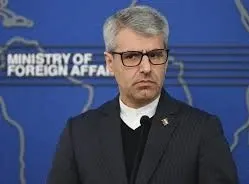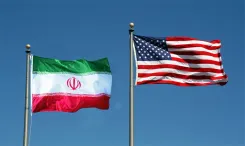Why Did Iran Condemn the US Sanctions on ICC Judges?

Synopsis
In a bold statement, Iran's Foreign Ministry spokesperson Esmaeil Baghaei condemned the US sanctions against ICC judges, deeming it a significant setback for US foreign policy. This move has sparked intense debate on international law and the role of the US in global justice. Discover the implications of this controversial decision.
Key Takeaways
- Iran's Foreign Ministry criticized US sanctions on ICC judges.
- Sanctions viewed as a threat to international law.
- US actions linked to Israel's alleged war crimes.
- Calls for global resistance against such measures.
- Focus on the integrity of the judicial process.
Tehran, June 9 (NationPress) Iran's Foreign Ministry spokesperson, Esmaeil Baghaei, has sharply criticized the recent decision by the US to impose sanctions on judges of the International Criminal Court (ICC), labeling it a "new low" for US foreign policy.
In a post on the social media platform X, Baghaei expressed his disapproval following the US government's announcement on Thursday, which targeted four ICC judges. This action was taken in response to the tribunal's issuance of an arrest warrant for Israeli Prime Minister Benjamin Netanyahu and a previous decision to examine alleged war crimes committed by US forces in Afghanistan.
Baghaei remarked that the US government's initiative to "sanction and harass ICC judges and personnel for adhering to their judicial mandate" represents a "new low", even for a system that heavily relies on coercion and intimidation to push its foreign policy agenda.
He also noted that the United States continues to misuse its power, connecting it to Washington's recent vote against a United Nations Security Council resolution aimed at halting "genocide" in Gaza, as reported by Xinhua news agency.
Baghaei emphasized that the sanctions against ICC judges render the United States the most "enduring and persistent accomplice" in "Israeli crimes in Gaza."
He called on the international community to resist such "barbarism that threatens the very foundation of international law and undermines the fundamental principles of humanity."
According to a statement from US Secretary of State Marco Rubio, the sanctions targeted Solomy Balungi Bossa from Uganda, Luz del Carmen Ibanez Carranza from Peru, Reine Adelaide Sophie Alapini Gansou from Benin, and Beti Hohler from Slovenia.









